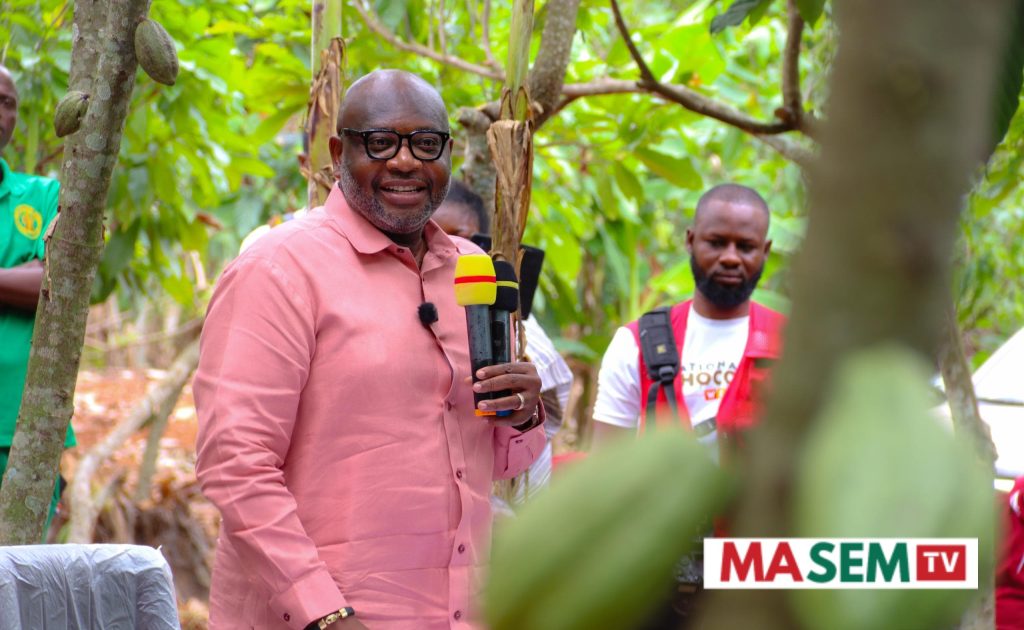The Chief Executive Officer of the Ghana Cocoa Board (COCOBOD), Dr. Randy Abbey, has paid a courtesy visit to the Dormaahene, Osagyefo Oseadeeyo Agyeman Badu II, and the Paramount Queen Mother of Dormaa, Dr. Akosua Fima Dwabeng Ababio II, as part of his ongoing working tour of the Bono Region.
During his visit to the Dormaa Royal Palace, Dr. Abbey stressed his commitment to directly engaging cocoa farmers across Ghana, stating, “The cocoa is not in Accra; it is on the farms.” He explained that the purpose of his national tour is to hear farmers’ concerns firsthand and collaborate on practical strategies to improve their livelihoods.
Dr. Abbey assured cocoa farmers in the Bono Region that they can expect a rise in cocoa prices by August 2025, ahead of the 2025/2026 crop season. He reaffirmed Dormaa’s vital role as a key cocoa-producing hub in the country.
In a striking revelation, Dr. Abbey alleged that the previous NPP government had sold Ghana’s cocoa for the 2024/2025 season at $2,600 per tonne without notifying the incoming administration. He stated that this deal was absent from the official transition documents, leaving the current government to inherit significant financial obligations, which it is now working to resolve.
Speaking on behalf of the Dormaahene and the people of Dormaa, the Paramount Queen Mother expressed heartfelt appreciation for Dr. Abbey’s visit, calling it a clear sign of respect and dedication to cocoa farmers. She emphasized cocoa’s critical role in Ghana’s economy as the leading source of foreign exchange.
“Many families depend solely on cocoa to care for their children, relatives, and to sustain their livelihoods,” she said. “I myself own cocoa farms, which I rely on to support my royal responsibilities.”
The Queen Mother urged COCOBOD to increase cocoa prices and ensure that farming inputs are made affordable. She also highlighted Dormaa’s historical ties to COCOBOD, noting that former CEO Dr. Stephen Opuni hailed from the area. In her closing remarks, she offered prayers for Dr. Abbey, invoking ancestral protection and guidance in his role.
During an open interaction session, local cocoa farmers raised several concerns and requests. They called for further price increases, educational scholarships for their children, and incentives to encourage youth involvement in agriculture.
Dr. Abbey’s visit forms part of a broader initiative aimed at strengthening relationships with traditional leaders and cocoa farmers nationwide, while promoting transparency, accountability, and sustainable growth in the cocoa sector

